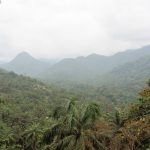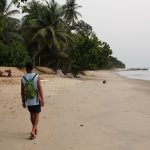Launch of the ProBioDev call for proposals
Version française disponible sur ce lien
As part of the Support Programme for biodiversity Civil Society Organizations (CSOs) active in developing countries (ProBioDev), the IUCN French Committee is launching a call for proposals to support projects in developing countries led by civil society partnerships. This initiative aims to support projects focused on biodiversity conservation and Nature-based Solutions, addressing climate change mitigation and adaptation.
Since February 1st, 2024, the IUCN French Committee has been implementing the Support Programme for biodiversity Civil Society Organizations (CSOs) active in developing countries, known as ProBioDev. Over the span of three years, ProBioDev aims to enhance biodiversity in developing countries by empowering civil society action and strengthening the capacities and partnerships of CSOs.
Supported by a coalition of public and private partners, including the French Development Agency, the French Biodiversity Agency (OFB), the Audemars Piguet Foundation for Trees, the Fondation de France, the Manthano Foundation, the Egis Foundation, and the Maisons du Monde Foundation, the programme also aims to support alliance strategies and the development of equitable and supportive partnerships to address biodiversity challenges in developing countries.
For this purpose, a grant initiative for meso-projects has been established. The first call for proposals is open from April 9th to May 26th, 2024. This call aims to support approximately ten field projects, offering grants ranging from €100 000 to €250 000 for a maximum duration of 24 months. Co-financing provided through these grants will represent up to 90% of the total project budget.
Projects must be carried out in a country eligible for official development assistance (ODA) according to the OECD DAC list (with a priority given to the African continent) and led by civil society partnerships. These partnerships must include a French civil society organization (CSO) and a local CSO registered in a developing country. The main objective of the project should be biodiversity conservation and/or Nature-based Solutions focused on climate change mitigation and adaptation, aligning with the objectives of the Kunming-Montreal Global Biodiversity Framework.
All details regarding the call for proposals can be found in the competition regulations available on this page.
To respond to the call for proposals, the grant application form and its annexes must be completed in French or English and sent by email to probiodev@uicn.fr by May 26th, 2024 (11:59 PM CEST). Requests for clarification can be submitted until May 21st, 2024. To obtain further details, the IUCN French Committee is organising an online information session to address your questions regarding the call for proposals. To participate, please register using the following links:
- Here for the French session on April 25th at 3:00 PM (CEST)
- Here for the English session on April 26th at 3:00 PM (CEST)
CSOs eligible to respond to this call for proposals are invited to express their interest as soon as possible by sending an email to probiodev@uicn.fr.

Frequently Asked Questions :
(regularly updated based on clarification requests)
Absolutely! Partnerships, consisting of a French Civil Society Organization (CSO) and a local CSO, should also designate a project leader (primary contact) and a main partner. In the grant application, the local CSO has the option to serve as either the project leader or the main partner. Similarly, the French CSO has the same flexibility.
Exceptionally, partnerships may involve three CSOs, provided that the relevance of this collaboration, the complementarity of expertise and support, and the alignment with the project’s objectives are clearly demonstrated.
The two CSOs comprising the partnership must be independent, with their own legal status, decision-making bodies, and governance. Therefore, two branches or offices of the same organisation will not be eligible to form a partnership under this call for proposals. They must not be subordinate to each other and must have their own autonomy in decision-making and management of their internal affairs. We recommend carefully reviewing the eligibility criteria for CSOs in the competition regulations, including the different statuses for French and local CSOs, to be fully eligible.
We recommend that you carefully read the eligibility criteria for CSOs in the competition regulations, including the different statuses for French and local CSOs, in order to be fully eligible. As a reminder, the two CSOs making up the partnership must be independent, with their own governance. Thus, two branches of the same organization will not be eligible to form a partnership under this call for proposals.
A secondary technical partner can be involved in the project (and not as part of the partnership), possibly with co-financing or retrocessions of part of the funds for the implementation of certain activities. The legal status of a secondary technical partner is flexible and may include organisations from different sectors such as private, nonprofit, governmental (e.g. local authorities), research institutions, and more.
No. The grants are awarded to CSOs established under the following legal statuses:
- For French CSOs:
- A French association operating under the law of 1901, or a non-profit association governed by the local law in Alsace Moselle involved in international solidarity actions;
- A trade union under French law (law of 21 March 1884), engaged in international solidarity actions;
- A French foundation recognised as serving the public interest, implementing international solidarity initiatives.
- For local CSOs:
- A non-profit association or non-governmental organisation, established in compliance with the prevailing national legislation of a country eligible for official development assistance (ODA), with autonomous governance, independent of national governments, the private sector and any international organisation.
Note : It is possible to include the participation of other secondary technical partners in the project, possibly with co-financing or retrocession of part of the funds to these actors for the implementation of certain project activities.
Yes, an organisation that does not specifically focus on biodiversity can collaborate with an organisation specialised in this field, and the coherence, reciprocity, and complementarity of the partnership must be clearly demonstrated. It is also important to note that expertise in the proposed technical area will be part of the selection criteria when selecting projects.
Associations and foundations engaged in redistributive activities that fund initiatives without directly carrying out international solidarity actions are not eligible as project leaders or main partners. Projects require active participation in the implementation of actions and direct involvement on the ground, beyond simple fund redistribution. Therefore, the CSOs comprising the partnership must have the capacity to carry out concrete actions related to the project’s objectives and actively contribute to its implementation.
Yes, you have the option to submit two applications: one as the project leader and the other as the main partner. However, it is important to note that depending on the number of applications received and the selection pressure, prioritization may be made between the two applications.
The organisations must have been registered and active for at least two years.
Indigenous people’s organisations may be eligible if they meet the specific criteria outlined and the legal statutes defined in the call for proposals competition regulations.
Yes, CSOs from Niger and Burkina Faso are eligible for the call for proposals. The call for proposals is open to all initiatives carried out in countries eligible for Official Development Assistance, following the list established by the OECD DAC. However, it is important to note that the use of French public funds at the time of project award and throughout its implementation is conditioned by the absence of restrictions from the French government. These restrictions may evolve depending on geopolitical events. Approval from the competent authorities of the French government will be necessary if the project is selected.
Since the Malian government decided in November 2022 to immediately ban all activities carried out by NGOs in Mali, funded or materially or technically supported by France, projects and CSOs from Mali cannot be supported.
Under exceptional circumstances, a configuration involving three CSOs could be accepted, provided that additional and complementary expertise and the relevance of this collaboration are clearly demonstrated. In this particular case, a project involving one French CSO and two local CSOs working in two different countries, both eligible for ODA, would be considered eligible. However, it should be noted that the coherence and technical and financial feasibility of the project will be essential selection criteria.
The projects main objective must be biodiversity conservation and/or Nature-based Solutions aswering specifically to climate change adaptation and mitigation challenges (in order to answer to at least one target of the Kunming-Montreal Global Biodiversity Framework).
Projects must also contribute to improve living conditions for local populations.
If not associated with a conservation project, or if they mainly focus on organising seminars and training sessions, they will not be eligible. The main objective of the projects must be biodiversity conservation and/or the implementation of Nature-based Solutions that specifically address the challenges of climate change adaptation and mitigation, in compliance with at least one target of the Kunming-Montreal Global Biodiversity Framework.
Development projects that do not primarily aim to preserve nature are not eligible. The main objective of the projects must be biodiversity conservation and/or the implementation of Nature-based Solutions that specifically address the challenges of climate change adaptation and mitigation, in compliance with at least one target of the Kunming-Montreal Global Biodiversity Framework.
In the context of NbS theme, to be eligible, two essential conditions must be met:
- Directly contribute to climate change adaptation and mitigation to ensure human well-being.
- Produce benefits for biodiversity by implementing measures for preservation, restoration, and/or sustainable management of ecosystems.
The main societal challenge addressed by the project must be related to climate change, but other secondary societal challenges can also be taken into account (especially socio-economic development).
Not specifically, but this objective should be rather cross-cutting in the project proposal. However, for projects funded at over €200,000, it is required to achieve at least one output aimed at improving the well-being and/or livelihoods of local populations, and to include one or more specific indicators to assess these aspects.
The 10% necessary co-financing cannot come from French public funds (French Development Agency, French Facility for Global Environment – FFEM, Ministry of Europe and Foreign Affairs, including French embassies). However, a configuration where only a portion of the co-financing comes from French public funds (for example, 70% from ProBioDev, 10% from French public funds, and 20% from a local authority) is acceptable. Outside of that, there are no restrictions; co-financing can come from private funds, local partners, communities, CSOs themselves, etc. These contributions must be justified when submitting the funding application.
No, the responsibility for covering these aspects will fall to the IUCN French Committee. Furthermore, support will be provided to beneficiaries to facilitate the reporting of accounting and financial information and to verify the eligibility of expenses as projects are implemented.
No, there are no strict rules, and it is not mandatory to have an equal distribution (50/50), but budget allocation is an element of quality and coherence of the partnership between CSOs that will be taken into account in the selection criteria.
There is no restriction on the project start date. However, eligible expenses must be incurred no later than July 31, 2026, starting from the date of notification of the grant award, which is expected to be in early July 2024.
Projects can benefit from ProBioDev grants ranging from €100,000 minimum to €250,000 maximum (excluding co-financing), representing up to 90% of the total project budget. In the provisional budget template, the first sheet should detail expenditure items for ProBioDev funding, while the second sheet should present total resources for each co-financing of the project.
Regarding administrative documents, if they are not in French or in English, they must be officially translated and included in the application along with the original documents.
The lead organisation will be solely responsible for financial accountability, as we will only sign an agreement with them. The lead organisation will receive the funds (one part at the agreement’s signature, one part midway through the project, and a minimal percentage upon project completion) and will distribute them to the partner organisation as needed. However, a partnership agreement detailing the responsibilities of each organisation will be signed between the two CSOs and included in the agreement, making both organisations responsible for project implementation.
The 10% of contributions announced for project co-financing must come from actual monetary contributions, either from one or both CSOs themselves or from their other financial partners.
Replay of the information session on the ProBioDev 2024 call for proposals
Documents to apply
-
Annexes : Partnership commitment form and logical framework and budget templates




